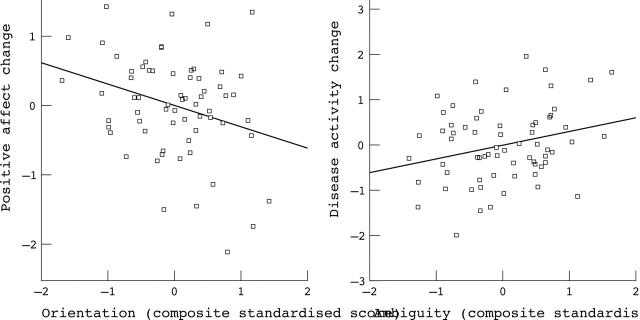Abstract
Methods: Sixty six patients (44 female, 22 male; mean (SD) age 57.7 (11.6) years) participated in a prospective study. Hierarchical regression analysis was used to predict change of perceived health between study entry and follow up (1½ years later) from the emotion regulation styles ambiguity, control, orientation, and expression at study entry.
Results: Valuing and intensely experiencing emotions (emotional orientation) predicted a decrease of positive affect. Difficulty recognising and expressing emotions (ambiguity) predicted an increase of perceived disease activity. Emotion regulation showed no associations with change of negative affect and social and physical functioning.
Conclusions: Two styles of emotion regulation were shown to have a significant though modest role in the prediction of perceived health change in patients with RA. This suggests that the monitoring of emotion regulation may help to identify patients who are at risk for a reduction of perceived health. If our findings were confirmed by experimental research, improving emotion regulation skills might favourably affect perceived health.
Full Text
The Full Text of this article is available as a PDF (69.1 KB).
Figure 1.
Scatter plots of the relation between orientation and the residual change score of positive affect, and between ambiguity and the residual change score of disease activity.



